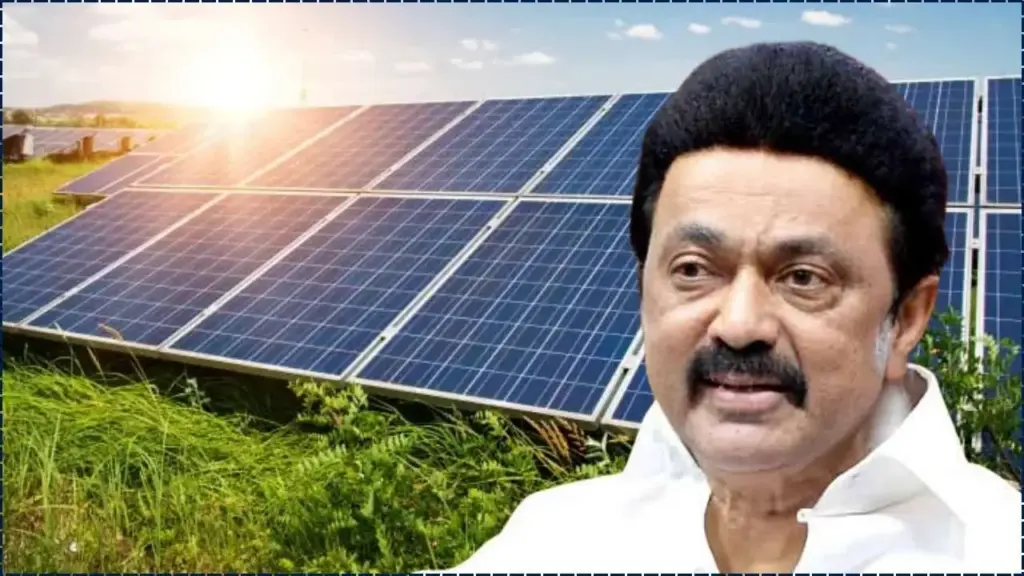Tamil Nadu has rolled out a Solar Power Subsidy Program aimed at promoting green energy solutions across the state. With the rising focus on sustainability and reducing carbon footprints, the state government offers significant financial assistance for households, institutions, and industries willing to adopt solar energy systems. This initiative is a part of Tamil Nadu’s broader vision to enhance the adoption of renewable energy, reduce dependency on conventional power, and promote environmental sustainability.

Tamil Nadu’s Solar Power Subsidy Program is a pivotal initiative aimed at fostering sustainable energy solutions for residential, commercial, and industrial sectors. By offering substantial subsidies and simplifying the application process, the state is encouraging a shift towards clean energy, benefiting both the environment and the economy. For homeowners, businesses, and public institutions, this is a timely opportunity to lower electricity costs while contributing to the green energy revolution.
Table of Contents
Overview of Tamil Nadu’s Solar Power Subsidy Program
The Tamil Nadu Solar Power Subsidy Program is designed to support individuals, businesses, and institutions in installing solar power systems. Through this scheme, the state government provides subsidies and financial incentives for the installation of rooftop solar panels to help consumers reduce their electricity bills while contributing to the environment.
The initiative falls under the Tamil Nadu Solar Energy Policy 2019, which aims to generate more than 9,000 MW of solar power by 2025. By providing direct financial aid, the government hopes to ease the transition to renewable energy and reduce the state’s carbon emissions.
Eligibility Criteria for the Solar Power Subsidy Program
The program is open to various sectors, and eligibility depends on specific criteria:
1. Residential Consumers
- Must have a residential electricity connection with the Tamil Nadu Generation and Distribution Corporation (TANGEDCO).
- Only domestic users are eligible for subsidized rooftop solar systems.
- Preference is often given to households with low to medium electricity consumption.
2. Industrial and Commercial Consumers
- The subsidy is also available to industrial and commercial establishments that wish to install rooftop solar panels.
- The installation must be done through an empaneled vendor recognized by the Tamil Nadu Energy Development Agency (TEDA).
3. Government and Public Institutions
- Schools, colleges, hospitals, and government offices can also avail themselves of the subsidy if they meet the program’s requirements.
4. Land and Roof Ownership
- Consumers must have ownership of the property where the solar panels will be installed.
Subsidy Amount and Financial Benefits
The Tamil Nadu Solar Power Subsidy Program provides varying subsidy amounts depending on the size of the solar power system being installed. The key financial benefits include:
1. Residential Subsidy
- Subsidy for rooftop solar systems is available for up to 3 kW capacity.
- The government offers a 30% subsidy on the total cost of the system for residential users.
- For installations above 3 kW, subsidies may be adjusted based on system capacity and project specifics.
2. Commercial and Industrial Subsidy
- For commercial and industrial consumers, the subsidy is up to 40% of the installation cost.
- These systems typically range between 5 kW to 50 kW in size, depending on the electricity requirements of the establishment.
3. Additional Financial Support
- Interest-free loans may also be available through financial institutions that partner with the state government.
- The cost of installation generally includes solar panels, inverters, batteries, and maintenance charges.
4. Return on Investment (ROI)
- Households and businesses can expect substantial savings on electricity bills, typically ranging from 40-60% of their monthly electricity usage.
- The system usually pays back the initial investment in about 3-5 years, depending on the capacity and usage.
Apply for the Tamil Nadu Solar Power Subsidy
The process of applying for the subsidy is streamlined through online platforms and TANGEDCO-approved vendors. Below is a step-by-step guide:
1. Registration on TEDA Portal
- Visit the official TEDA website to register for the subsidy program.
- Complete the registration form with personal, property, and electricity connection details.
2. Choose a Certified Vendor
- Select a government-certified solar panel vendor from the list provided by TEDA. Ensure that the vendor has the required credentials to install and maintain the solar system.
3. Submit Documentation
- Provide proof of residence, electricity bill, Aadhaar card, and bank details for direct subsidy transfers.
- For commercial and industrial applications, additional documents such as business registration and land ownership papers may be required.
4. Installation and Inspection
- Once the vendor is selected, the solar panels will be installed at the property.
- TANGEDCO officials will conduct an inspection to verify the installation and ensure compliance with safety and performance standards.
5. Subsidy Disbursement
- After successful installation and inspection, the subsidy amount will be credited to the consumer’s bank account or adjusted in the final billing process, depending on the size of the installation.
Related Links
Karnataka EV Policy: State Incentives for Electric Vehicle Adoption Explained
Integrated Government Online Directory: A State-by-state List of Important State Government Websites
How the PM Gati Shakti Yojana is Revolutionizing India’s Infrastructure Development
Challenges and Future Outlook
Despite the strong push towards solar energy, there are challenges to widespread adoption, including high initial costs, lack of awareness, and grid infrastructure issues. To address these, the state government is working to:
- Simplify the application process further.
- Encourage more financial institutions to offer easy financing options for solar installations.
- Improve grid connectivity to handle increasing solar power generation.
Looking ahead, the Tamil Nadu Solar Energy Policy is expected to play a pivotal role in meeting renewable energy targets and reducing the state’s dependency on coal-based power generation.
















